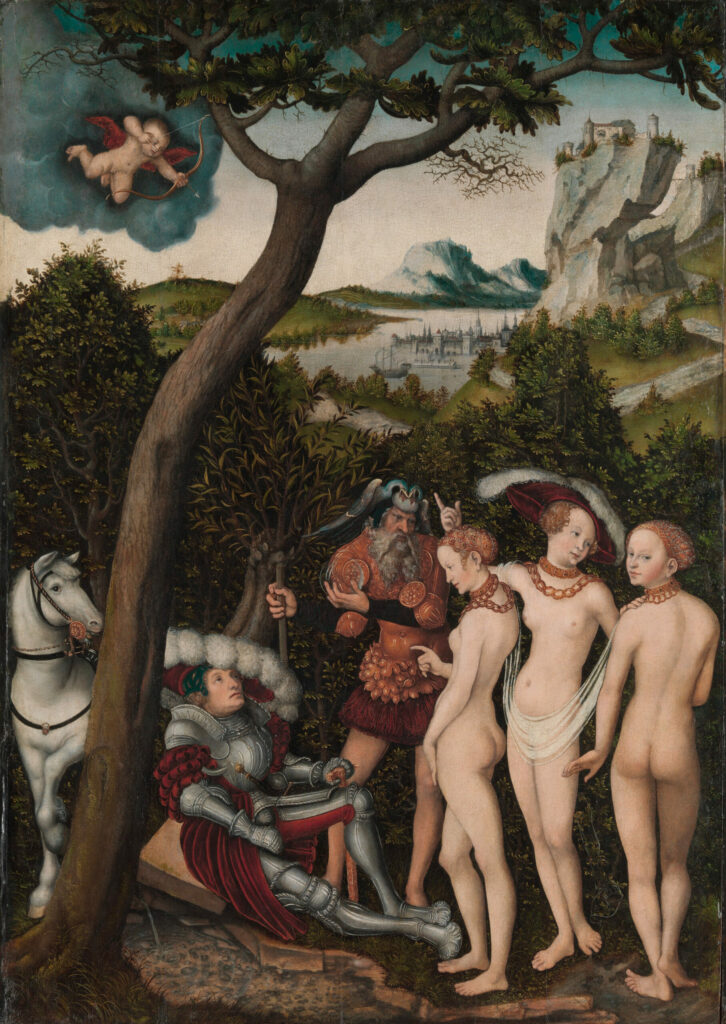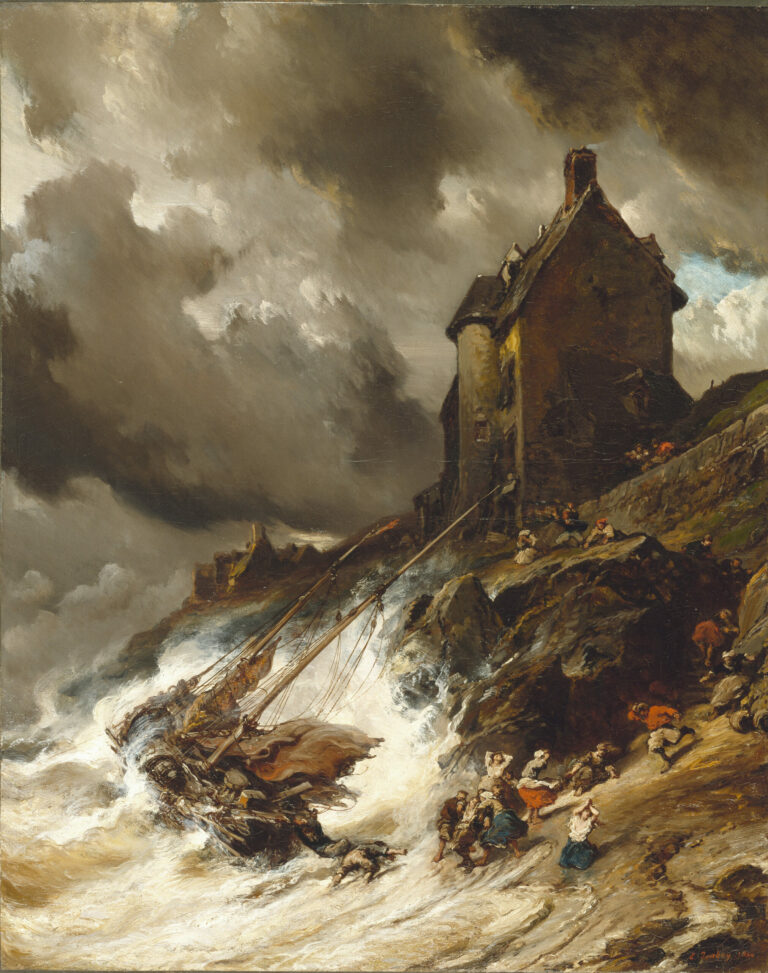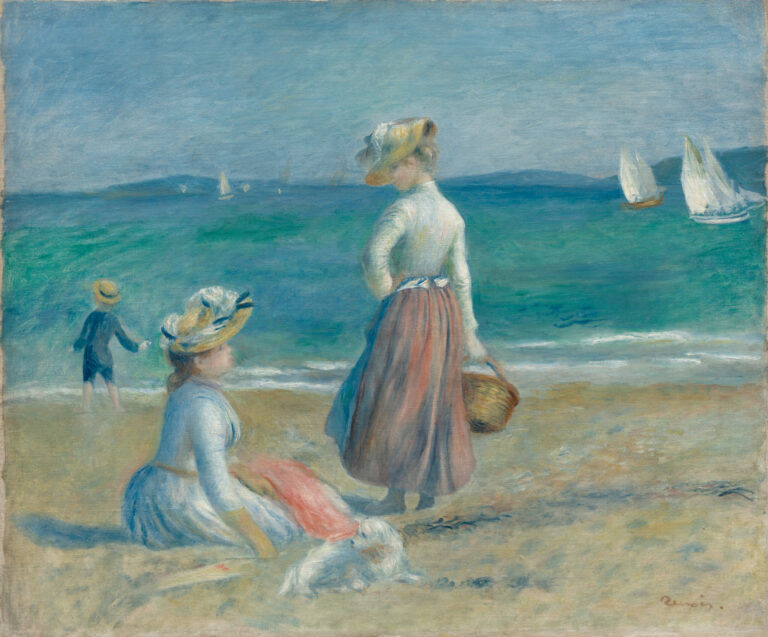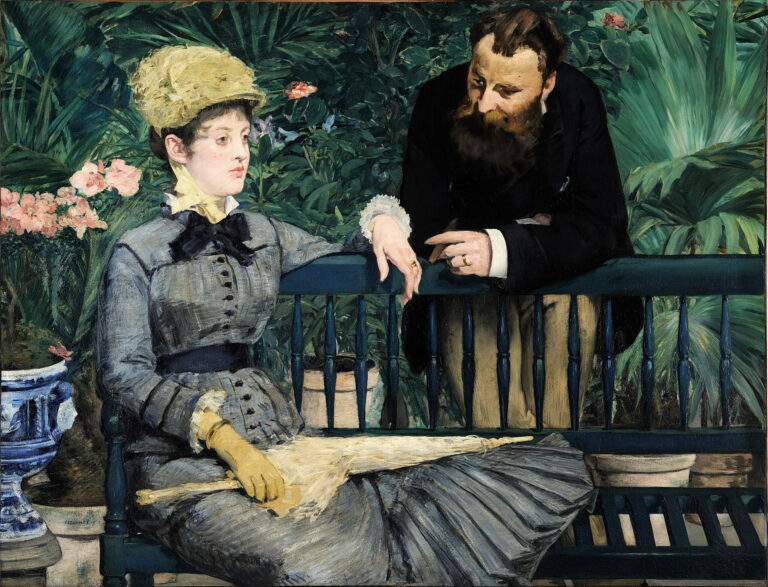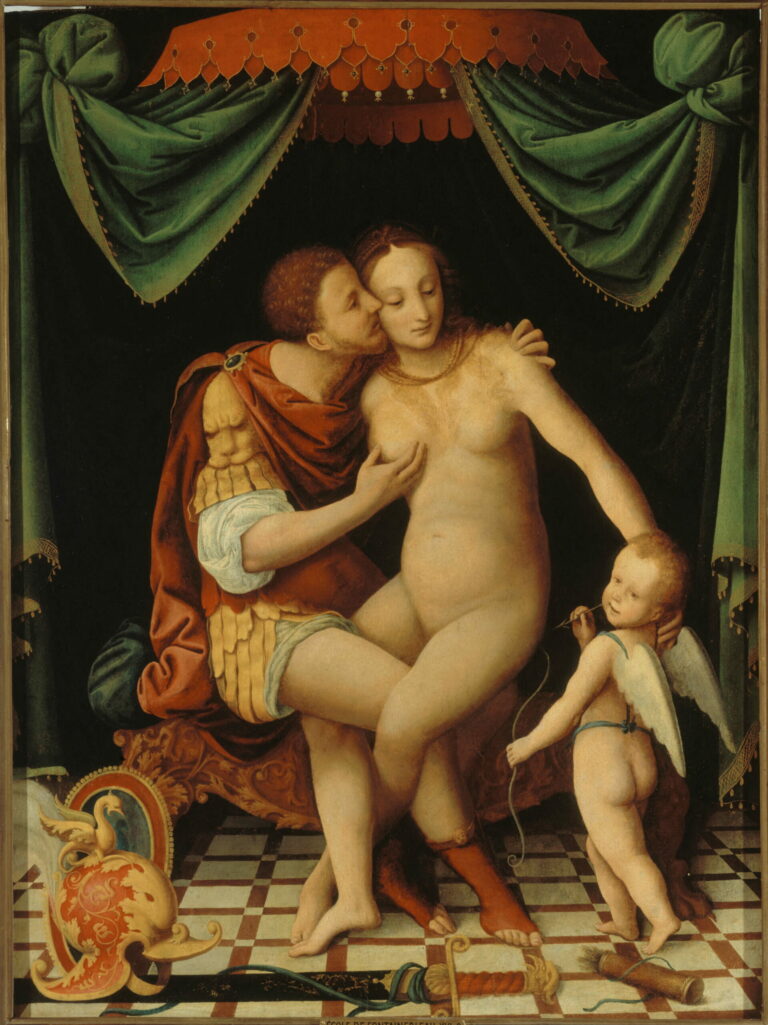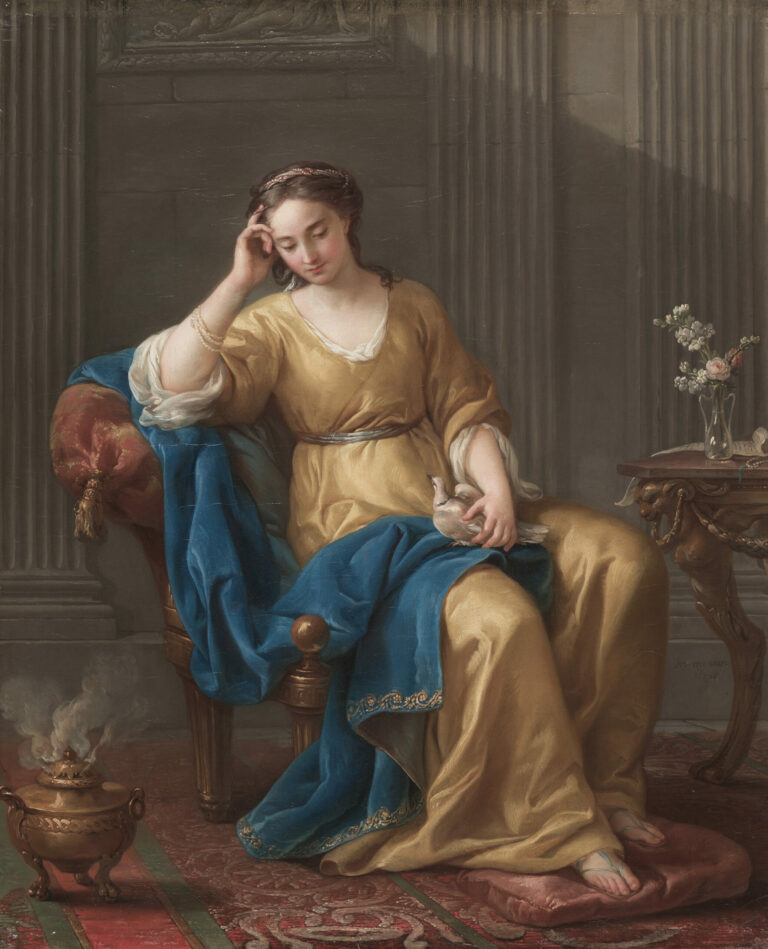Lucas Cranach the Elder reinterprets the Greek myth of the Judgment of Paris with distinctly Northern sensuality.
He demonstrates his mastery in the art of representing the female nude, delivering three silhouettes with elongated proportions and alabaster flesh. The scene unfolds in a typical landscape, where a tortuous tree divides the pictorial space and guides our gaze toward a bluish distance punctuated by steep reliefs and a medieval city. The striking contrast between the armor of Paris, reclining nonchalantly, and the nakedness of the goddesses creates visual tension. Mercury is depicted as a Germanic warrior rather than an ancient messenger. The composition reveals meticulous attention to detail: identical necklaces adorning the goddesses’ necks, the transparency of the glass globe substituted for the traditional golden apple, and Cupid flying in his turquoise cloud.
Additional Information
- Title: “The Judgment of Paris” by Lucas Cranach the Elder, possibly circa 1528
- Dimensions: 101.9 x 71.1 cm (40 1/8 x 28 in.)
- Location: The Metropolitan Museum of Art, Fifth Avenue, New York, not currently on display
- https://www.metmuseum.org/art/collection/search/436037
Lucas Cranach the Elder (1472-1553) is one of the major figures of the German Renaissance, alongside Dürer and Holbein. This versatile master developed a recognizable style, characterized by elongated figures, precise contours, and brilliant colors.
A close friend of Martin Luther and fervent supporter of the Reformation, he also became one of the main visual propagandists of nascent Protestantism. Simultaneously, his depictions of Venus, nymphs, and mythological scenes made him an undisputed master of the female nude in Germanic art. At the head of a vast family workshop, Cranach managed to combine artistic genius with an acute business sense, bequeathing to posterity a pictorial universe of singular grace.

